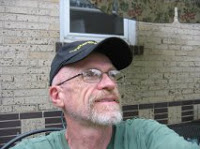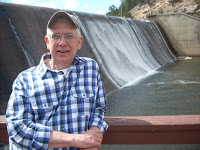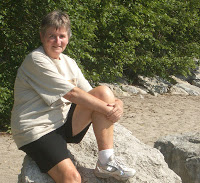stared in 1955 when I was a first grader at St. Peter Catholic School in La Porte
Indiana. My family lived on what was actually a real family farm of about 200
acres growing corn, soybeans, wheat and oats. We had a few milk cows, the
occasional pig, a few sheep and lots of chickens along with a dog or two and
several barnyard cats. The cats had escaped the fate of so many other barnyard felines
and not wound up in a gunnysack full of rocks at the bottom of a horse tank.
What can I say it was a different time and this cat population control was
usually done out of sight from us kids.
the farm to the town of La Porte that had three elementary Catholic schools. We
went to the one that served mostly Irish families.
maternal and paternal were not far removed from Ireland and on my mother’s side
supposedly came from Roscommon County. I believe these grandparents were all
second-generation immigrants from the Emerald Isle, but unfortunately I do not
know this for sure. I should check this out though since if just one of your
grandparents was born in Ireland, even if neither parent was, you are eligible
for Irish citizenship. This is something
that seems quite attractive these days.
northern Indiana for sometime but being Irish Catholics they had not always
been welcomed with open arms. Family lore included an oft repeated story of a
KKK cross burning at the end of the lane leading to my paternal grandparent’s
home in the early 1920’s. The Klan was very resurgent at that time and Indiana
was a hotbed of this activity. Along with African Americans the Jews and
Catholics were also on their list of undesirables.
being quite cocooned in the environment of conservative Catholicism 24/7 we
were fairly sheltered from these blatant forms of racism and xenophobia. I mean
we were after all white living in the very white world of rural Indiana and the
KKK was on the wane by this time. The unrelenting religious brainwashing I was
subjected to in grades 1-8 was in hindsight a form of child abuse no matter how
righteous or well intentioned. Sadly generations had been drinking that religious
kool-aide. My parents, at significant financial cost for a lower middle class
family, felt the burden of parochial school for their kids was an act of love,
a duty even and therefore something necessary. It was after all a bunch of
Protestants who had burned that cross at the family farm several decades
before.
through my grade school years the rumblings of great social change were on the
horizon. For my family this was manifest in the fact that an Irish Catholic was
running for president and the ground truly began to shift when he was actually elected
president of the United States. It was a true miracle, JFK in the White House.
Even his assassination a few short years later could not slow the train of
change.
significant sacrifice on my parents’ part I was enrolled in a Catholic high
school in Michigan City Indiana in 1963 called St. Mary. This was a time when
my queer juices were really taking off though the environment of a Catholic
School in northern Indiana was not conducive to supporting this gay
flowering. Then an amazing thing
happened late in my sophomore year and my family moved to a small farm outside
of Woodstock Illinois, a town best described as a suburban bedroom community
northwest of Chicago.
I believe today to be my two most important school years. Nothing like coming under the influence of a
very politically left-leaning, staunchly anti-war Holy Cross nun and seeking
guidance to deal with my ever emerging gayness from a school counselor several
decades older than myself who was to become my first sexual partner. These two
mentors did more to shape who I am today than all the many other teachers I
encountered over my long and often tortuous formal educational path.
about these two individuals for this group and won’t reiterate those details
here. Suffice it to say though that my formal schooling continued for years to
come. Those academic adventures included 5 years at the University Of Illinois
at Champaign-Urbana, two years of nursing school at the University of Colorado
and another two years at Regis University here in Denver where I was awarded a
Masters Degree in Nursing Administration. That last one was truly a
masturbatory exercise in how to waste time and money for which I take total
responsibility, the faculty at Regis tried, and they really did.
least 21 years of formal education. There are really only two years of that
that mattered and those were 1966 and 1967 when I learned the joys of gay sex
and how to challenge the status quo. The knowledge of gay sex has served me
well, despite the little HIV issue. The importance of being a sexual adept though
seems to fade with each passing year but the ability to hit the streets and man
the barricades continues to be more salient than ever. As an often seen resistence
sign says these days “I can’t believe I
still have to protest this shit”
the Author
on a farm and schooled by Holy Cross nuns. The bulk of my adult life, some 40
plus years, was spent in Denver, Colorado as a nurse, gardener and gay/AIDS
activist. I have currently
returned to Denver after an extended sabbatical in San Francisco, California.


